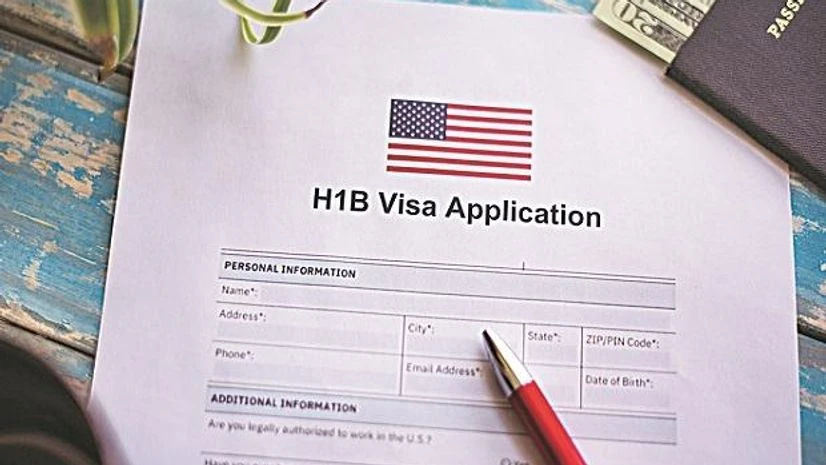The US government is set to implement a major overhaul of the H-1B visa programme from January 17, 2025. The updated rules include clarified eligibility criteria, streamlined processes, and measures to ensure fairness and transparency, according to the US Department of Homeland Security (DHS).
“These improvements to the programme provide employers with greater flexibility to hire global talent, boost our economic competitiveness, and allow highly skilled workers to continue advancing American innovation,” said Alejandro N Mayorkas, Secretary of Homeland Security.
The reforms are expected to benefit thousands of Indian professionals, who constitute the majority of H-1B visa holders. In 2023, Indian nationals accounted for 72.3% of the 386,000 H-1B visas issued.
Key updates to the H-1B programme
The new rules aim to address long-standing concerns from employers, employees, and advocacy groups. Key changes include:
Also Read
Revised criteria for cap-exempt organisations: Nonprofit and governmental research organisations will qualify as cap-exempt if their "fundamental activity" is research, replacing the older, vague definition of being “primarily engaged” in research.
Simplified transition for F-1 visa holders: Students on F-1 visas moving to H-1B status will face fewer disruptions in employment authorisation and legal status.
Faster visa processing: USCIS has committed to speeding up the processing of applications for H-1B extensions, easing the burden on employers and workers.
Flexibility for employers: Businesses can now hire H-1B workers based on specific, documented needs, enabling more dynamic workforce planning.
Eligibility for individuals with controlling interest: Entrepreneurs and others with controlling interest in their sponsoring organisation can qualify for H-1B visas under stricter conditions.
Stronger safeguards against misuse: USCIS will enhance inspections, impose penalties for non-compliance, and ensure that all roles meet eligibility criteria.
Updated petition form: A revised Form I-129 will be required from 17 January 2025, aligning with the updated regulations.
Year-round cap exemptions: Cap-exempt organisations will now be allowed to submit petitions year-round without numerical limitations.
These organisations include:
Institutions of Higher Education: Universities and colleges that meet the criteria outlined in the Higher Education Act of 1965.
Nonprofit Entities Affiliated with Higher Education Institutions: Nonprofit organisations that have a formal affiliation with universities or colleges, such as teaching hospitals or research centres.
Nonprofit Research Organisations: Independent nonprofit entities primarily engaged in basic or applied research.
Governmental Research Organisations: Federal, state, or local government entities focused on research activities.
Measures against lottery abuse: The system will implement stricter measures to prevent organisations from flooding the lottery with bulk applications, ensuring fairness for genuine applicants. Uncertainty around the H-1B lottery has pushed some families to explore alternatives like the EB-5 programme, which offers a pathway to US residency through investment. “Many firms are hesitant to engage with the unpredictable lottery process,” said Piyush Gupta, vice president for India and the Middle East at CanAm Enterprises told Business Standard. “Families are also looking for more stable options.”
Challenges for IT firms
The changes come at a time when H-1B approvals have declined for major employers. Amazon, the largest sponsor, reported a drop in approvals from over 11,000 in 2023 to just over 7,000 in 2024. Indian IT giants like Infosys and Tata Consultancy Services (TCS) also faced reductions. Infosys saw its approvals decrease from 7,300 to 5,900, while TCS recorded a drop of 1,600 approvals.
However, some firms, such as Meta, reported increases in approvals. Meta’s focus on virtual and augmented reality technologies has driven its demand for H-1B professionals.
Economic impact of H-1B workers
H-1B visa holders have been crucial to the US economy, particularly in the technology and healthcare sectors. Between 2010 and 2019, over 3,300 H-1B scientists, chemists, and biophysicists contributed to Covid-19 vaccine development at companies like Moderna and Johnson & Johnson. Medical professionals on H-1B visas also played vital roles during the pandemic.
A report by the American Immigration Council noted that H-1B workers complement the domestic workforce, create new job opportunities, and drive economic growth.
The current annual cap for H-1B visas stands at 65,000, with an additional 20,000 reserved for foreign nationals holding advanced degrees from US institutions.
“The H-1B programme was created by Congress in 1990, and there's no question it needed to be modernised to support our nation's growing economy,” said USCIS Director Ur M Jaddou.

)